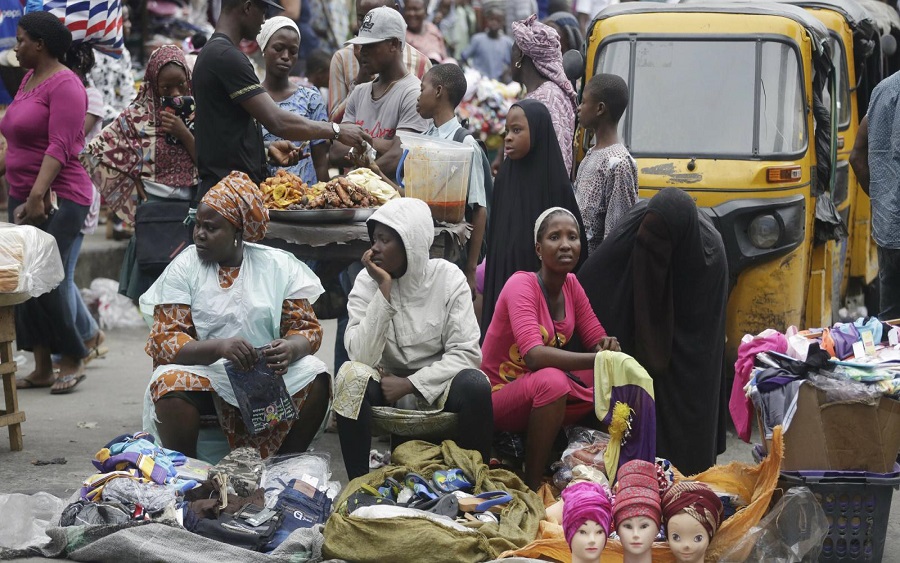The United Kingdom’s Enhancing Financial Innovation and Access (EFInA) has disclosed that over 100 million Nigerians earn less than N700 per day.
In a survey report released on Monday in Lagos, the firm, which is saddled with the responsibility of promoting financial inclusion in Nigeria, stated that most men and women in the nation do not feel they have enough money.
What it implies
The development limits them to save, make income or take risks on loans, thereby making them financially excluded.

The report titled, ‘Assessment of Women’s Financial Inclusion in Nigeria’, stated that approximately half of the Nigerian population earns less than N700 per day as Nigeria has the largest number of people living in extreme poverty in the world.
Nearly 50% of the population endures extreme poverty, the unemployment rate stands at around 23% and a significant portion of Nigerians lack adequate education.
It stated, “They devote the little income they have to live costs (e.g., food, rent, cooking fuel, and clothes) their children’s education, and occasionally, family and community events (eg, births. Weddings and funerals).
“They often considered the financial services they knew of (e.g., bank accounts and savings groups) out of reach because they felt they did not have enough disposable income to make the necessary deposits. In general, they experienced a lack of control over their economic situation and often trusted in God to look after them.”
[READ MORE: Warning signs: Nigerians living in extreme poverty might increase by 30 million – World Bank]
Highlights
EFInA attributed the financial inclusion challenge, especially among women, to:
- Low income and education – These factors explain a very sizeable part of the gender and are the factors that come up consistently across both overall inclusion (access and usage) and both formal and informal inclusion. Furthermore, these factors are the only ones that associate so significantly for both men and women and on which scores between genders vary substantially.
- Levels of income – The gender gap in overall exclusion can, to a large extent, be attributed to the facts that women experience significantly lower educational attainment than men – impacting their earning capacity – and women have lower levels of trust in FSPs than men.

- Lower levels of income, education in rural areas – The rural-urban differential in overall exclusion rates is primarily impacted by lower-income and education, and lack of trust in FSPs. It stated, “Our analysis shows that the difference is not statistically significant when controlling for other factors, most importantly, levels of income, education, and trust in FSPs.”
“Nigerians in rural areas are less likely to use formal financial services than those in urban areas. A scarcity of access points (driven by limited critical mass and thus commercial viability) means that even for rural populations with sufficiently high levels of income, education and trust, formal financial services are hard to reach.”
- Marital status, mobile phone ownership and rural vs urban location – Mobile phone ownership is a powerful predictor of formal financial inclusion. However, phone ownership, in and of itself, is not the driver of inclusion. This is evident from analysis of the non-DFS using population which showed phone owners’ usage of non-digital methods of accessing financial services.












This doesn’t come as a surprise, since the nation was wrecked by rent-seeking lawyers and accountants.